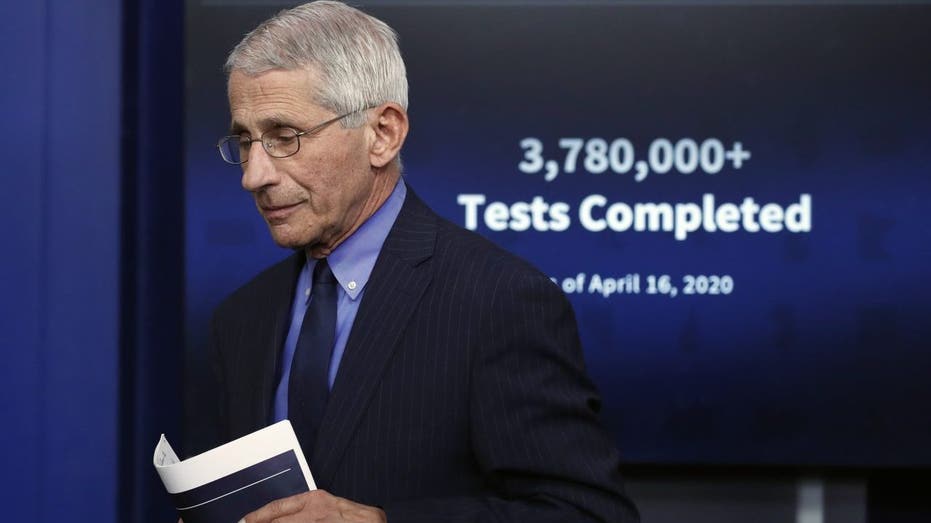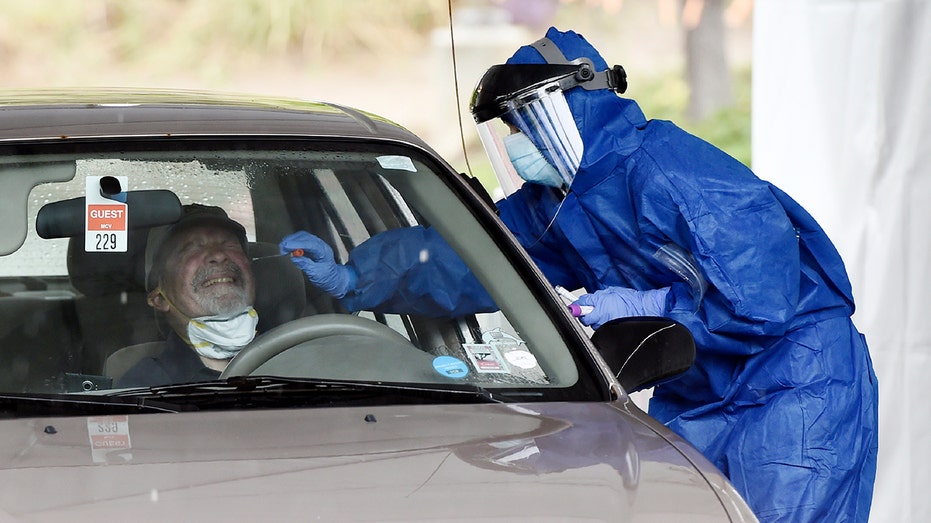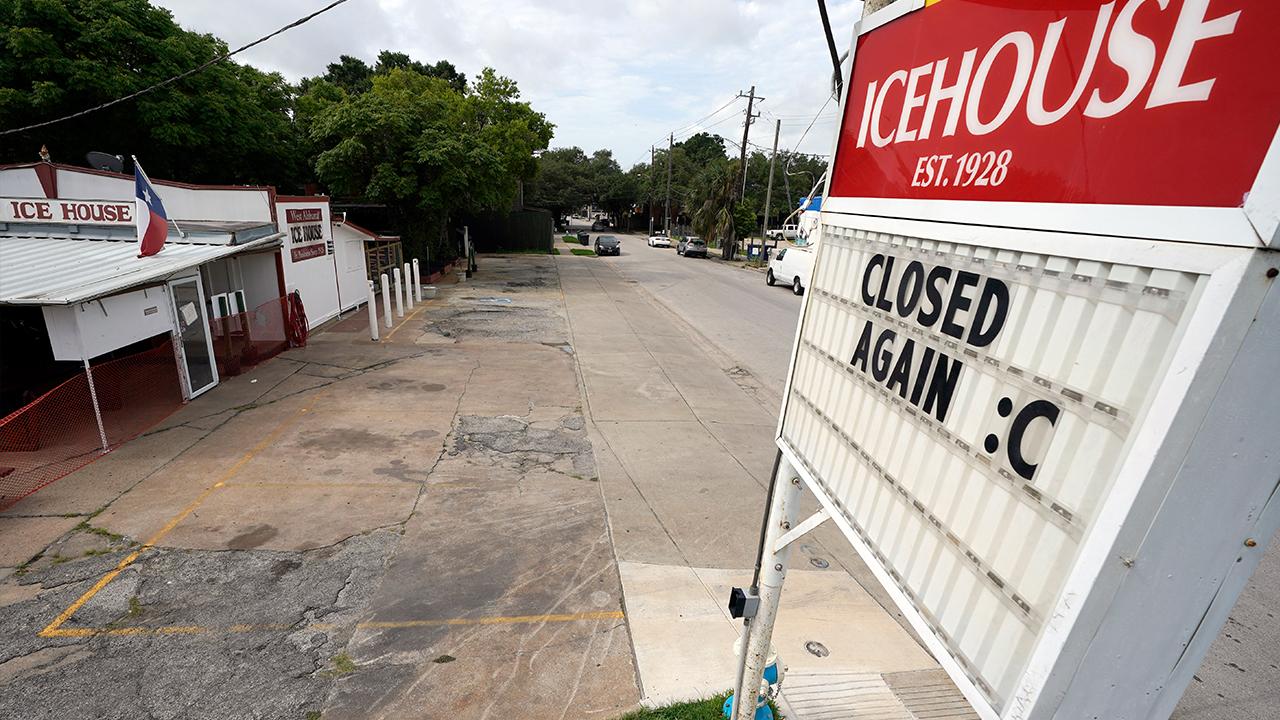Coronavirus second wave: Is the US experiencing it now?
The rising number of cases is part of COVID-19's first wave, experts say
With a surge of coronavirus cases in some states like Florida, California, North Carolina and Arizona, some are speculating whether the United States is experiencing a "second wave" of COVID-19.
The U.S. has recorded nearly double the number of total confirmed COVID-19 cases over the past month, and more than 130,000 Americans have died of the virus, according to data from Johns Hopkins University and other health authorities.
STOCKS SPIKE AS JOBS REPORT BLOWS PAST EXPECTATIONS
A number of states have reinstituted lockdown guidelines after initially reopening to contain new cases as a result. Experts, however, say the country is still experiencing its first wave of the virus.
'When you have 20,000-plus infections per day, how can you talk about a second wave?" Dr. Anthony Fauci, director of the National Institutes of Health, has said. "We’re in the first wave. Let’s get out of the first wave before you have a second wave."

Dr. Anthony Fauci, director of the National Institute of Allergy and Infectious Diseases, walks from the podium after speaking about the new coronavirus. (AP Photo/Alex Brandon, File)
Fauci warned the American public of the possibility of a resurgence of cases as early as April, when initial infection numbers spiked in densely populated areas like New York City, causing schools and businesses to shutter.
3 MISTAKES THAT COULD WRECK YOUR RETIREMENT IF THERE'S A SECOND WAVE OF COVID-19
But scientists generally agree the nation is still in its first wave of coronavirus infections, albeit one that’s dipping in some parts of the country while rising in others.
"This virus is spreading around the United States and hitting different places with different intensity at different times," Dr. Richard Besser, chief executive of the Robert Wood Johnson Foundation, said. Besser was acting director of the Centers for Disease Control and Prevention when a pandemic flu hit the U.S. in 2009.
CORONAVIRUS JOBLESS CLAIMS TOP 48M
Dr. Arnold Monto, a University of Michigan flu expert, echoed that sentiment.

A health worker administers a coronavirus test at a drive-through testing site organized by actor Sean Penn's nonprofit organization Community Organized Relief Effort (CORE) at Malibu City Hall in Malibu, Calif. (AP Photo/Chris Pizzello)
"What I would call this is continued transmission with flare-ups," he said.
COVID-19 testing efforts have also significantly increased, though large numbers of positive cases are still being reported, according to Johns Hopkins data.
Fauci warned on Tuesday that confirmed cases could reach 100,000 per day if the public does not engage in social distancing and follow other federal and local guidelines. He added that a rise in cases across the South and Southwest "puts the entire country at risk."
CLICK HERE TO GET FOX BUSINESS ON THE GO
"When you have an outbreak in one part of the country, even though in other parts of the country they’re doing well, they are vulnerable," he said.
Some worry a large wave of coronavirus might occur this fall or winter — after schools reopen, the weather turns colder and less humid, and people huddle inside more. That would follow seasonal patterns seen with flu and other respiratory viruses. And such a fall wave could be very bad, given that there’s no vaccine or experts think most Americans haven’t had the virus.
CLICK HERE TO READ MORE ON FOX BUSINESS
The Associated Press contributed to this report.




















